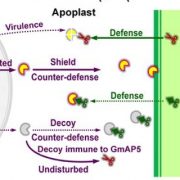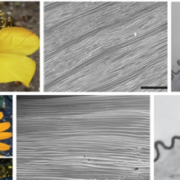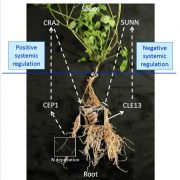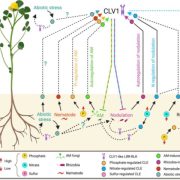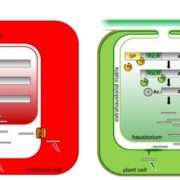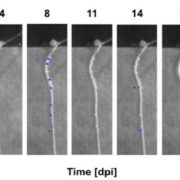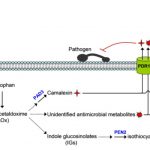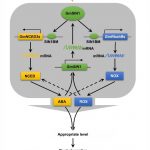RIN4/NOI fragments utilize different N-end rules of degradation to fight off pathogens (Plant Physiol)
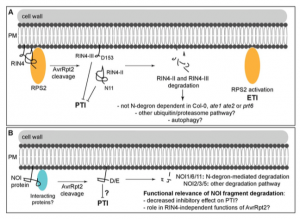 To fight off invading pathogens, plants such as Arabidopsis are intrinsically programmed with a subset of defense responses often known as pattern-triggered immunity (PTI) and effector-triggered immunity (ETI). AvrRpt2, an effector secreted by the pathogen Pseudomonas syringe, is a protease that can cleave several central regulators of immune response in plants. The nitrate-induced domain (NOI) protein family in plants, release fragments generated by bacterial AvrRpt2 cleavage that can trigger host immune responses. It is thought that most of NOI protein fragments are destabilized by a N-degron pathway. However, recently Goslin et al. found an exception in a NOI protein called RPM1-INTERACTING PROTEIN4 (RIN4), whose destabilization of AvrRpt2 is independent of the N-degron pathway. This study advances our current understanding of the role of N-degron mediated degradation of NOI fragments in the context of the AvrRpt2 diversity. (Summarized by Nanxun Qin) Plant Physiology 10.1104/pp.19.00251
To fight off invading pathogens, plants such as Arabidopsis are intrinsically programmed with a subset of defense responses often known as pattern-triggered immunity (PTI) and effector-triggered immunity (ETI). AvrRpt2, an effector secreted by the pathogen Pseudomonas syringe, is a protease that can cleave several central regulators of immune response in plants. The nitrate-induced domain (NOI) protein family in plants, release fragments generated by bacterial AvrRpt2 cleavage that can trigger host immune responses. It is thought that most of NOI protein fragments are destabilized by a N-degron pathway. However, recently Goslin et al. found an exception in a NOI protein called RPM1-INTERACTING PROTEIN4 (RIN4), whose destabilization of AvrRpt2 is independent of the N-degron pathway. This study advances our current understanding of the role of N-degron mediated degradation of NOI fragments in the context of the AvrRpt2 diversity. (Summarized by Nanxun Qin) Plant Physiology 10.1104/pp.19.00251


